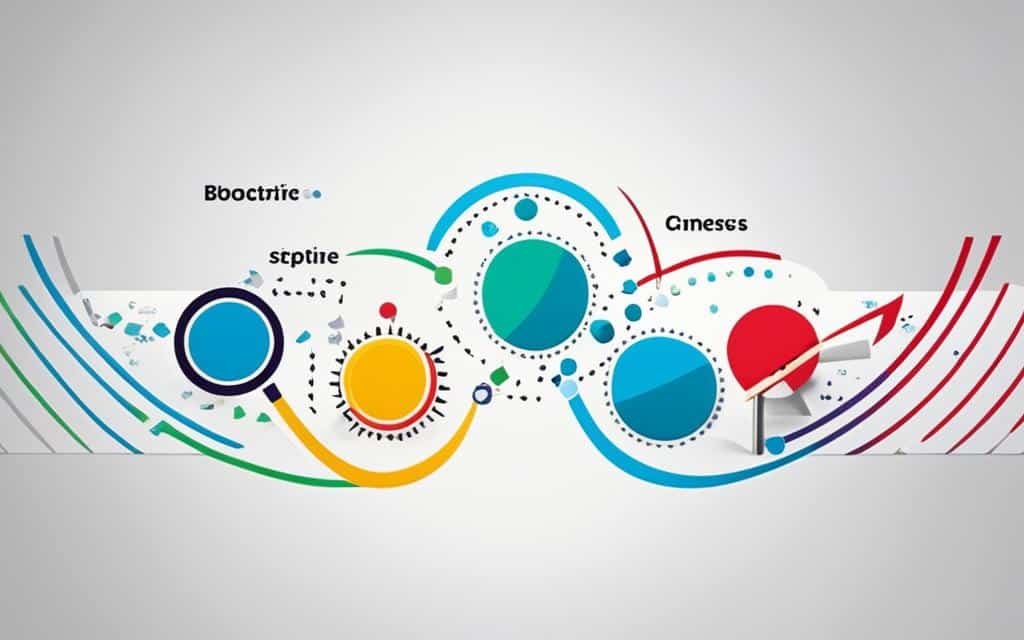Have you ever been in a situation where you struggled to convey your thoughts clearly? Maybe it was during a job interview, a difficult conversation with a loved one, or a presentation in front of a room full of people. We’ve all been there. Effective communication is something we strive for, but it doesn’t always come naturally.
Personally, I used to struggle with interpersonal communication. It seemed like every time I tried to express myself, the message got lost in translation. I would stumble over my words, my body language would send mixed signals, and I could sense the frustration building in the person I was talking to.
That’s when I realized that communication is not just about the words we speak. It’s about verbal communication and nonverbal communication working together harmoniously. Also about active listening and understanding the needs and perspectives of others. It’s about using communication techniques to engage and connect with people on a deeper level.
In this article, we will explore the world of communication, from written communication to communication strategies, and everything in between. We will delve into the key elements of effective communication and provide you with practical tips and strategies to enhance your communication skills. Are you ready to take your communication to the next level?
Key Takeaways:
- Effective communication involves both verbal and nonverbal elements.
- Active listening is crucial for understanding others and building connections.
- Communication techniques can help you engage and connect with people.
- Written communication is just as important as verbal communication.
- By improving your communication skills, you can enhance your personal and professional relationships.
Understanding the Different Types of Communication Skills
Communication can take various forms, and each type plays a crucial role in conveying messages effectively. It’s important to understand the different types of communication skills to enhance your overall ability to communicate with others. The main types of communication skills include:
Verbal Communication: The Verbal Exchange
Verbal communication involves the use of spoken words to convey messages. It includes face-to-face conversations, presentations, meetings, and phone calls. Effective verbal communication requires clarity, tone, and the ability to engage your audience. It’s an essential skill for building connections and fostering understanding in both personal and professional settings.
Written Communication: Crafting the Written Word
Written communication involves the use of written words to convey messages. It includes emails, reports, memos, and other written documents. Written communication requires clarity, organization, and attention to detail. Developing strong written communication skills is crucial for effectively conveying complex information and ensuring clear and concise communication.
Nonverbal Communication: Unspoken Understanding
Nonverbal communication refers to the unspoken elements of communication, such as facial expressions, body language, and gestures. These nonverbal cues can convey emotions, attitudes, and intentions, often complementing or contradicting verbal communication. Understanding nonverbal cues and using them effectively can enhance the overall impact and clarity of your messages.
Active Listening: Receiving Information Effectively
Active listening is the art of receiving information attentively and responding appropriately. It involves fully understanding the message being conveyed, asking clarifying questions, and providing feedback. Active listening skills are crucial for effective communication as they demonstrate your interest and engagement, foster empathy, and minimize misunderstandings.
Contextual Communication: Navigating Unspoken Understandings
Contextual communication involves understanding and navigating the unspoken factors and cues that influence communication. It requires taking into account social norms, cultural differences, and environmental factors to ensure effective and appropriate communication. Being aware of and adapting to the context in which communication takes place is essential for building rapport and understanding with others.

Overall, understanding and developing various types of communication skills is essential for effective communication. By mastering oral communication, written communication, nonverbal communication, active listening, and contextual communication, you can enhance your ability to convey messages clearly, connect with others, and navigate diverse communication settings.
Key Elements of Effective Communication
Effective communication relies on several key elements that contribute to clear and impactful conversations. By incorporating these elements into your communication style, you can enhance your communication skills and foster better understanding with others.
Clarity is crucial in communication. When conveying a message, it’s essential to articulate your thoughts in a concise and understandable manner. Using clear and straightforward language helps avoid misunderstandings and ensures that your message is received accurately.
Empathy plays a significant role in effective communication. By considering and understanding others’ perspectives, you can build connections and foster a sense of mutual understanding. Empathy allows you to relate to others and adapt your communication style to meet their needs and preferences.
Feedback is a valuable tool in improving communication. By actively seeking and providing feedback, you can address any misunderstandings, clarify information, and refine your communication skills. Feedback helps create an open and constructive dialogue, enhancing the effectiveness of communication.
Understanding your audience is another key element in effective communication. Adapting your communication style based on the needs, preferences, and background of your audience fosters better understanding. By tailoring your message to resonate with the intended audience, you can ensure that your communication is impactful and well-received.

| Key Elements | Description |
|---|---|
| Clarity | The use of clear and concise language to convey messages |
| Empathy | Understanding and considering others’ perspectives and needs |
| Feedback | Actively seeking and providing feedback to improve communication |
| Audience Understanding | Adapting communication style based on the needs and preferences of the audience |
By incorporating these key elements into your communication practices, you can enhance your ability to effectively convey messages, build meaningful connections, and foster understanding.
Strategies to Enhance Your Verbal and Nonverbal Communication Skills
Improving your verbal communication and nonverbal communication skills is essential for effectively conveying messages. By implementing the following strategies, you can significantly improve how your messages are received and understood:
- Practice clarity in spoken words: When communicating verbally, strive for clarity and conciseness. Use simple language, avoid jargon, and organize your thoughts before speaking.
- Pay attention to body language: Nonverbal cues, such as body language, gestures, and facial expressions, can convey messages alongside verbal communication. Be mindful of your body language and ensure it aligns with the message you want to convey.
- Be mindful of tone of voice: The tone of voice can greatly impact how a message is perceived. Pay attention to your tone, ensuring it matches the intended message and conveys warmth, respect, and confidence.
- Utilize communication strategies: Effectively communicating also involves active listening and employing communication strategies. Focus on actively listening to others, asking clarifying questions, and adapting your communication style to different situations.
By incorporating these strategies into your communication style, you can enhance your verbal and nonverbal communication skills, leading to improved understanding, stronger connections, and more successful interactions.
Developing Strong Communication Skills in the Digital Age
With the rise of digital communication, it has become increasingly important to develop strong communication skills in order to thrive in the modern era. The shift towards remote work and virtual collaboration has created new challenges and opportunities for effective communication.
Mastering Online Meetings and Virtual Collaboration
Online meetings and virtual collaboration have become integral parts of many individuals’ work lives. To excel in these settings, it is crucial to understand the best practices for effective communication. By leveraging digital platforms and tools, fostering active participation, and practicing clear and concise communication, you can make virtual meetings productive and engaging.
Essential Communication Techniques for Remote Teams
Remote teams often face unique communication challenges due to physical distance. However, by employing essential communication techniques, you can bridge the gap and foster strong connections within your team. These techniques include maintaining regular communication, using diverse communication channels, and establishing clear expectations for collaboration and responsiveness.

The Impact of Digital Communication Tools on Interpersonal Skills
The increasing reliance on digital communication tools has both positive and negative effects on interpersonal skills. While these tools enable efficient communication, they can also lead to decreased face-to-face interaction and potential misunderstandings. It is crucial to be mindful of this impact and make conscious efforts to maintain and develop strong interpersonal skills, even in the virtual environment.
Conclusion
Effective communication is a vital skill for success in all aspects of life, whether it’s personal or professional. By honing your communication skills, you can significantly improve your ability to connect with others and express your thoughts and ideas clearly. Remember that effective communication encompasses various types of skills, including verbal, written, nonverbal, and active listening.
To enhance your communication abilities, it is important to focus on key elements such as clarity, empathy, feedback, and understanding your audience. Implementing strategies to improve both verbal and nonverbal communication can also make a significant impact. Whether it’s practicing clarity in spoken words, paying attention to body language, or being mindful of tone of voice, these strategies can help you convey your messages more effectively.
As we navigate the digital age, adapting our communication skills to the virtual setting is crucial. Mastering online meetings and virtual collaboration techniques can foster productive interactions in remote teams. It’s also important to recognize the influence of digital communication tools on interpersonal skills and make an effort to maintain meaningful connections despite the absence of face-to-face interactions.
Remember, communication skills are not static but can always be improved upon. Continuous learning and development of your communication skills will enable you to strengthen your relationships, resolve conflicts more effectively, and achieve your goals with greater ease. Embrace the opportunities to enhance your communication skills, and you will undoubtedly reap the rewards in both your personal and professional life.
FAQ
What are communication skills?
Communication skills refer to the ability to convey messages effectively and build connections through various forms of communication, including verbal, nonverbal, and written communication.
Why are communication skills important?
Communication skills are essential for success in personal and professional relationships. They facilitate stronger connections, effective conflict resolution, and clear expression of ideas and thoughts.
What are the different types of communication skills?
The different types of communication skills include oral communication (spoken words), written communication (written words), nonverbal communication (facial expressions, body language, gestures), active listening, and contextual communication.
What are the key elements of effective communication?
The key elements of effective communication include clarity (concise and understandable messages), empathy (considering others’ perspectives), feedback (addressing misunderstandings), and understanding the audience (adapting communication styles).
How can I enhance my verbal and nonverbal communication skills?
Strategies to enhance verbal and nonverbal communication skills include practicing clarity in spoken words, paying attention to body language, being mindful of tone of voice, using active listening techniques, and adapting communication styles to different situations.
How can I develop strong communication skills in the digital age?
To develop strong communication skills in the digital age, it is important to master online meetings and virtual collaboration, utilize essential communication techniques for remote teams, and be aware of the impact of digital communication tools on interpersonal skills.










